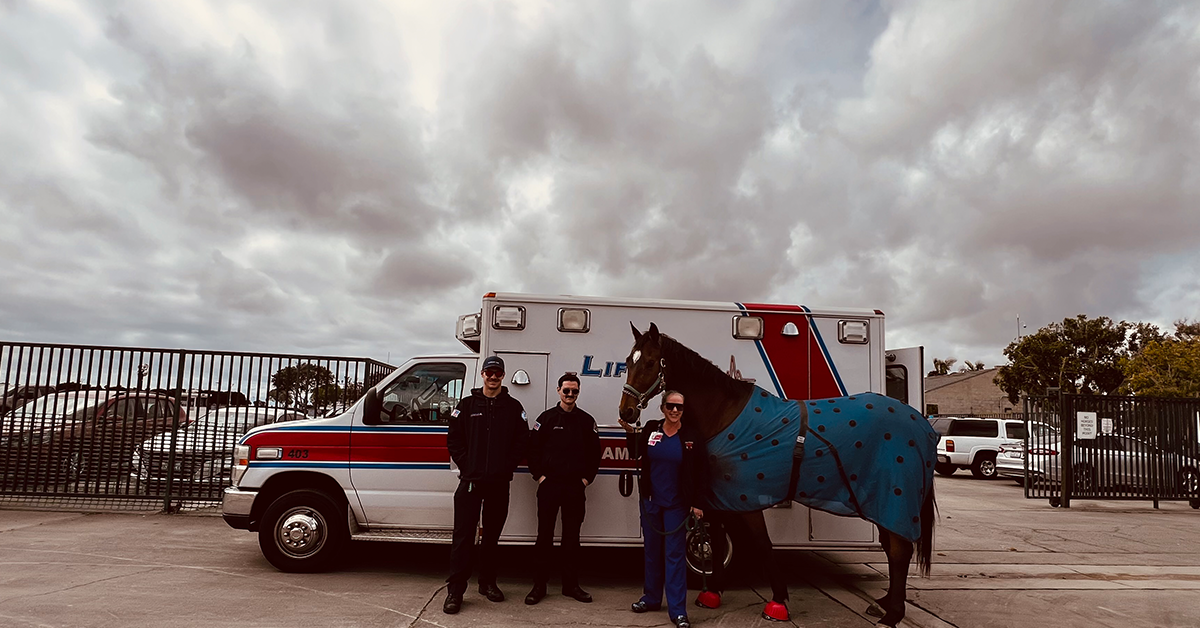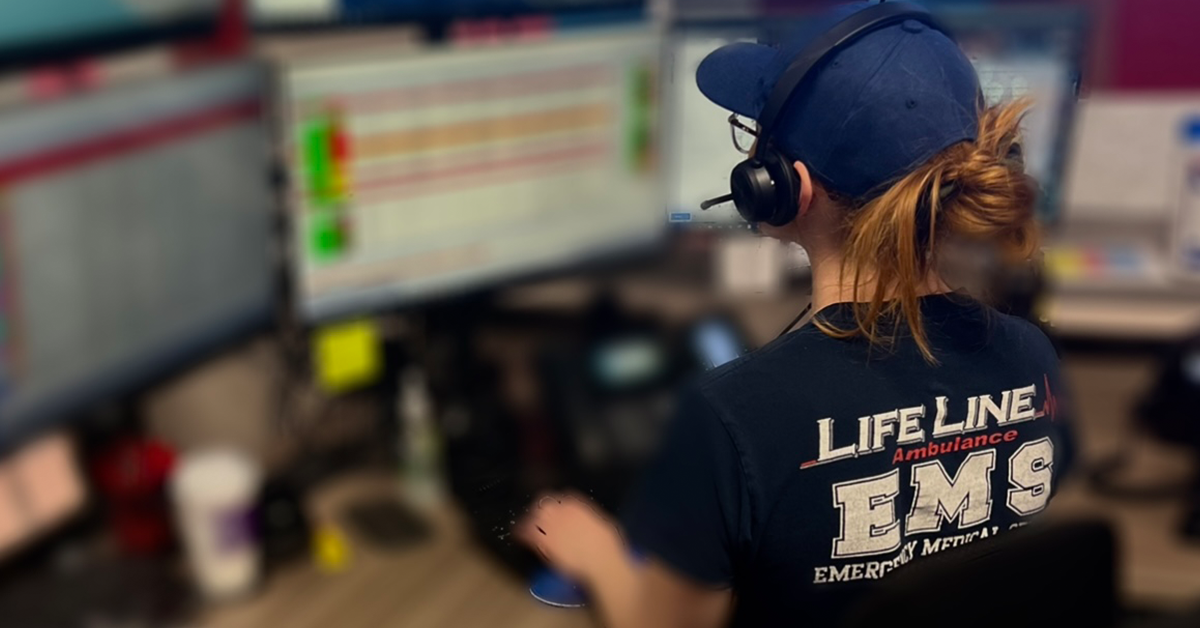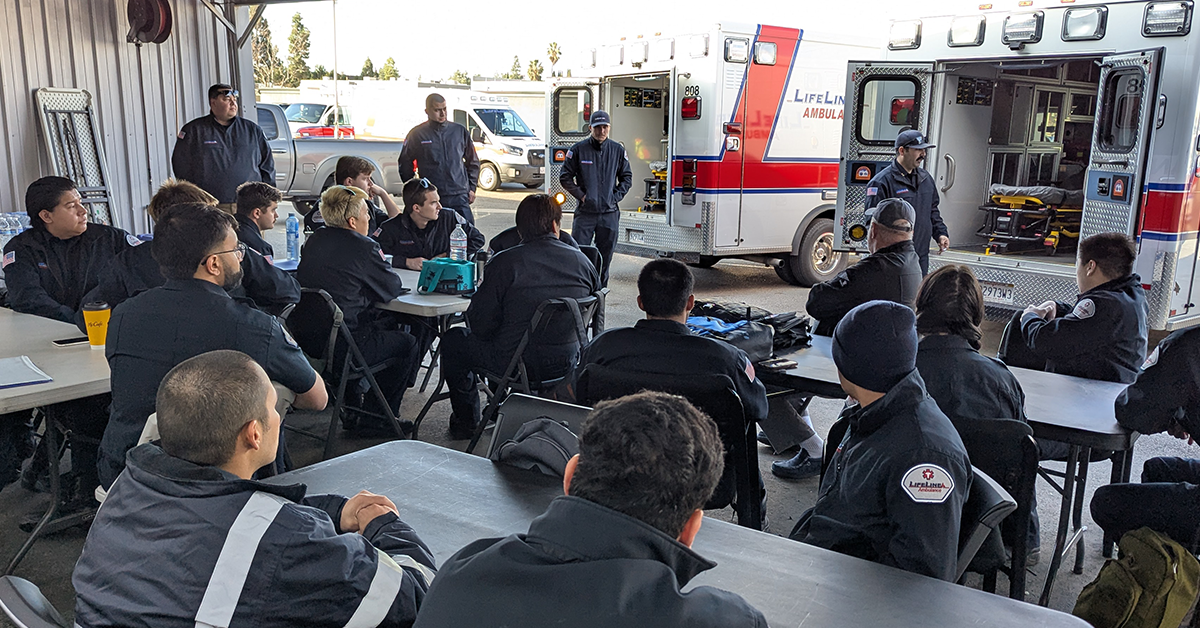For Emergency Medical Technicians (EMTs), finding a balance between the demands of their profession and their personal lives can be a significant challenge. The fast-paced and often unpredictable nature of EMS work can make it difficult to maintain a healthy work-life balance. However, with the right strategies, EMTs can manage stress, avoid burnout, and lead fulfilling lives both on and off the job. In this article, we explore practical tips and insights on how EMTs can achieve work-life balance, specifically for those working with LifeLine EMS in Los Angeles and Southern California.
Understanding the Work-Life Balance Challenge for EMTs
EMS professionals work in a high-stress environment, where they are frequently exposed to traumatic situations and must be ready to respond at any time. Irregular hours, long shifts, and exposure to difficult situations can make it challenging to maintain a balanced lifestyle.
Key Factors Affecting Work-Life Balance:
- Shift Work and Irregular Hours: Many EMTs work rotating shifts, including nights, weekends, and holidays. These irregular hours can disrupt sleep patterns, interfere with family time, and limit opportunities for social activities.
- Emotional and Physical Stress: EMTs are regularly exposed to stressful and emotionally taxing situations. The physical demands of the job, such as lifting patients and standing for long periods, can also lead to fatigue.
- High Job Demands: The unpredictable nature of EMS work means that EMTs may have to respond to multiple emergencies in a single shift, leading to long hours and limited time for breaks.
Despite these challenges, many EMTs find their work incredibly rewarding and fulfilling. By implementing strategies to manage stress and maintain a balance between work and personal life, EMTs can enjoy a sustainable and satisfying career.
Tips for Achieving Work-Life Balance as an EMT
While the demands of EMS work are unique, there are several effective strategies that EMTs can use to achieve work-life balance. Here are some tips that can help EMTs navigate the challenges of their profession and lead a more balanced life.
1. Prioritize Self-Care
Self-care is essential for managing stress and maintaining physical and mental well-being. Taking time for self-care allows EMTs to recharge and stay resilient in the face of their demanding work environment.
- Physical Health: Regular exercise, a balanced diet, and sufficient sleep are critical for maintaining physical health. Consider incorporating activities like yoga, walking, or strength training into your routine to stay active and manage stress.
- Mental Health: Mindfulness practices, such as meditation, deep breathing exercises, or journaling, can help EMTs reduce stress and improve focus. Taking time for mental health is essential for managing the emotional demands of EMS work.
- Set Boundaries: Establishing boundaries between work and personal time is crucial. Avoid bringing work-related stress home by designating specific times to relax and disconnect from work. Practice saying “no” when needed to prioritize your own well-being.
2. Optimize Your Schedule
Shift work is a common aspect of EMS, but there are ways to make it more manageable. Optimizing your schedule can help you balance work and personal life more effectively.
- Take Advantage of Downtime: Use any breaks or downtime during your shift to rest, hydrate, and recharge. Short breaks can improve focus and help you stay energized throughout your shift.
- Plan Around Your Shifts: When possible, plan personal activities and commitments around your work schedule. For example, if you work night shifts, prioritize sleep during the day and plan activities for later in the afternoon when you feel more alert.
- Coordinate with Colleagues: Work with your team to arrange shift swaps or adjust schedules when necessary. Open communication with colleagues can help accommodate personal needs while ensuring coverage for work responsibilities.
3. Develop a Support System
Having a strong support system can make a significant difference in managing work-related stress and maintaining a healthy work-life balance. Building connections with family, friends, and colleagues can provide valuable emotional support.
- Connect with Fellow EMTs: Building relationships with colleagues who understand the demands of EMS work can be a valuable source of support. Consider forming a peer support group to share experiences, advice, and coping strategies.
- Seek Support from Family and Friends: Share your work experiences with family and friends, and let them know how they can support you. Spending quality time with loved ones can help you recharge and gain perspective.
- Utilize Mental Health Resources: Many EMS organizations, including LifeLine EMS, offer access to mental health resources, such as counseling or employee assistance programs. Take advantage of these services when needed to maintain emotional well-being.
4. Practice Time Management
Effective time management can help you make the most of your personal time, ensuring that you have time to relax, pursue hobbies, and spend time with loved ones outside of work.
- Prioritize Tasks: Identify the most important tasks and focus on completing them first. By prioritizing tasks, you can ensure that you accomplish essential responsibilities and have time for personal activities.
- Set Realistic Goals: Set achievable goals for both work and personal life. Avoid overcommitting and practice saying no when necessary to maintain balance.
- Use Time-Blocking Techniques: Time-blocking can be an effective way to allocate specific time slots for work tasks, personal activities, and relaxation. This structured approach helps you stay organized and ensures that you have time for both work and leisure.
5. Focus on Work-Life Integration
For some EMTs, achieving a perfect separation between work and personal life may not always be possible. Instead, focusing on work-life integration—finding ways to blend work and personal life harmoniously—can be a more realistic approach.
- Incorporate Hobbies into Daily Life: Find small ways to incorporate your hobbies or passions into your routine. For example, if you enjoy reading, bring a book to read during breaks, or if you enjoy cooking, prep meals during your days off to enjoy nutritious meals during shifts.
- Stay Connected with Loved Ones: Stay connected with friends and family even during workdays. Simple gestures like sending a quick text or making a phone call during breaks can help you maintain personal connections.
- Embrace Flexibility: Being flexible and adaptable can help you navigate the unpredictable nature of EMS work. Embrace a mindset of work-life integration, where you find balance in the ebb and flow of your responsibilities rather than striving for strict separation.
6. Engage in Stress-Relieving Activities
Finding activities that help you relax and decompress is essential for managing stress and preventing burnout. Incorporating stress-relieving activities into your routine can enhance overall well-being.
- Outdoor Activities: Spending time in nature, such as hiking, walking, or gardening, can help reduce stress and improve mood. Being outdoors and staying active can be a great way to recharge on days off.
- Creative Outlets: Engage in creative activities, such as painting, drawing, writing, or playing an instrument. Creative outlets can provide a sense of accomplishment and serve as a positive way to unwind.
- Relaxation Techniques: Techniques such as deep breathing, progressive muscle relaxation, or guided imagery can help you relax after a long shift. These practices can also improve sleep quality and reduce anxiety.
How LifeLine EMS Supports EMTs in Achieving Work-Life Balance
LifeLine EMS recognizes the importance of work-life balance and is committed to supporting its EMTs in maintaining their well-being. Here are some of the ways LifeLine EMS helps its team members achieve balance:
1. Providing Flexible Scheduling Options
LifeLine EMS offers flexible scheduling options to accommodate the diverse needs of its EMTs. By allowing EMTs to work with supervisors on shift preferences and time-off requests, LifeLine EMS promotes a healthy work-life balance.
- Shift Swaps and Coverage: LifeLine EMS encourages team members to collaborate on shift swaps, enabling EMTs to accommodate personal commitments and manage their schedules effectively.
- Extended Time-Off Requests: EMTs can request extended time off for vacations or personal reasons, giving them the opportunity to rest and recharge.
2. Offering Mental Health Resources
LifeLine EMS provides access to mental health resources and encourages EMTs to prioritize their emotional well-being. Through these resources, EMTs have support for managing the stresses associated with EMS work.
- Employee Assistance Programs (EAPs): LifeLine EMS offers EAPs that provide access to counseling services, financial advice, and stress management tools to help EMTs cope with personal and professional challenges.
- Peer Support Programs: LifeLine EMS promotes peer support networks, allowing EMTs to connect with colleagues who can offer guidance, understanding, and shared experiences.
3. Promoting a Culture of Wellness
LifeLine EMS fosters a culture of wellness that emphasizes the importance of physical, mental, and emotional health. The organization actively promotes wellness initiatives that help EMTs maintain a balanced lifestyle.
- Wellness Workshops: LifeLine EMS hosts workshops and seminars on topics such as stress management, mindfulness, and nutrition, equipping EMTs with tools to support their overall well-being.
- Encouraging Open Communication: LifeLine EMS encourages EMTs to communicate openly with supervisors about their needs and challenges, fostering a supportive work environment where work-life balance is valued.
Keep Reading
Want more? Here are some other blog posts you might be interested in.
In the high-stakes world of emergency medical services, clear and effective communication can mean the difference between life and death. EMS professionals...
Emergency Medical Services is an ever-evolving field that requires constant learning and adaptation. With medical advancements, technological innovations, and increasing public health...
Emergency Medical Services s a high-stress, physically demanding profession that requires dedication, quick decision-making, and resilience. While the rewards of saving lives...






